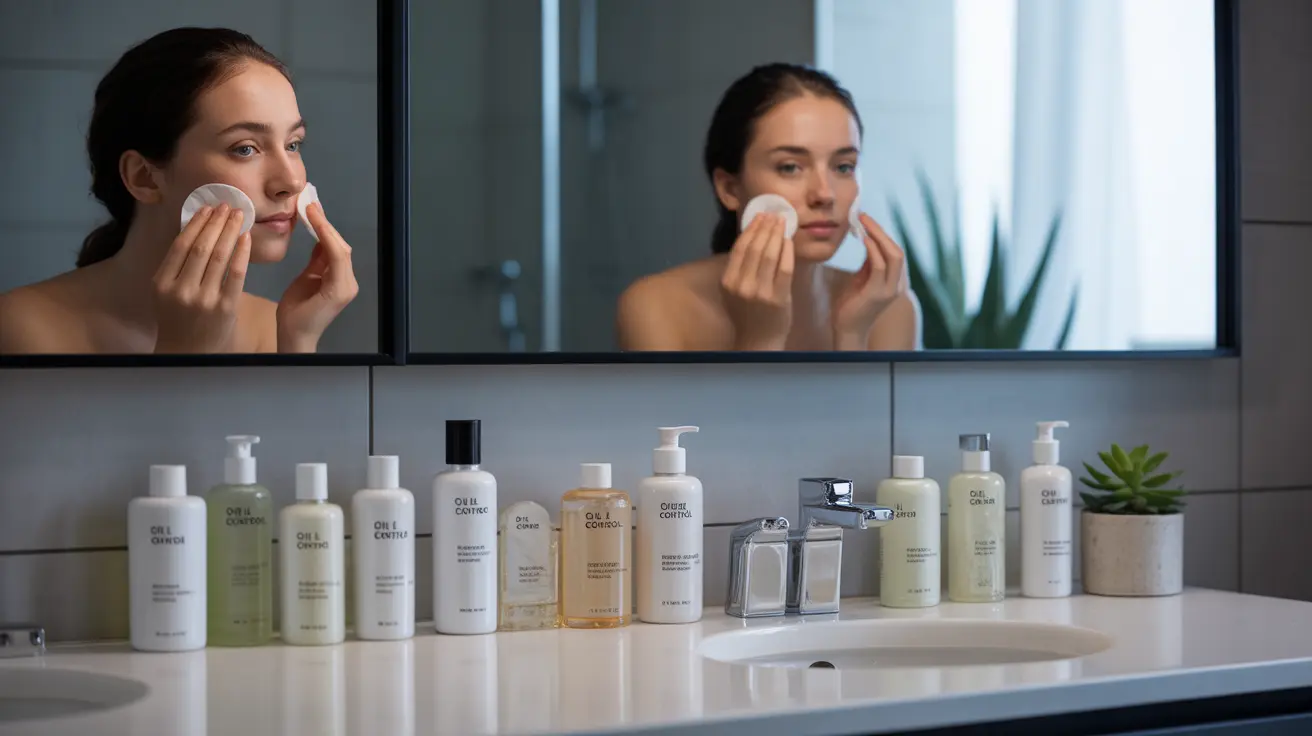Managing oily skin requires a thoughtful selection of skincare products and a consistent routine tailored to your skin's specific needs. While excess oil production can be frustrating, using the right products can help maintain a healthy balance without over-drying your skin or triggering additional oil production.
In this comprehensive guide, we'll explore the most effective products for oily skin and how to incorporate them into a balanced skincare routine that promotes clear, healthy skin while controlling excess sebum.
Choosing the Right Cleanser for Oily Skin
The foundation of any skincare routine for oily skin starts with an appropriate cleanser. Look for products containing these key ingredients:
- Salicylic acid (BHA)
- Benzoyl peroxide
- Glycolic acid
- Tea tree oil
- Niacinamide
These ingredients effectively remove excess oil and unclog pores while maintaining your skin's natural moisture barrier. Opt for gel or foam cleansers, as these formulations are typically lighter and more suitable for oily skin types.
Essential Toners and Treatments
After cleansing, using the right toner can help balance your skin's pH and provide additional oil control benefits. Look for alcohol-free formulations containing:
- Witch hazel
- Alpha-hydroxy acids (AHAs)
- Beta-hydroxy acids (BHAs)
- Green tea extract
- Zinc
Exfoliation Strategies
Regular exfoliation is crucial for oily skin, but it's important to approach it carefully to avoid irritation. Chemical exfoliants are often more effective than physical scrubs:
- Use BHA products 2-3 times per week
- Start with lower concentrations
- Gradually increase frequency based on skin tolerance
- Avoid harsh physical scrubs
Selecting the Right Moisturizer
Contrary to popular belief, oily skin needs hydration. Choose oil-free, non-comedogenic moisturizers containing:
- Hyaluronic acid
- Glycerin
- Ceramides
- Light gel formulations
- Water-based ingredients
Additional Treatment Products
Consider incorporating these targeted treatments into your routine:
- Clay masks (weekly use)
- Oil-control serums
- Spot treatments
- Mattifying primers
- Pore-minimizing products
Building Your Daily Routine
A successful skincare routine for oily skin should follow this basic structure:
Morning Routine
- Gentle cleanser
- Alcohol-free toner
- Light, oil-free moisturizer
- Broad-spectrum sunscreen
Evening Routine
- Double cleanse if wearing makeup
- Treatment products
- Night moisturizer
- Weekly treatments (masks, exfoliants)
Frequently Asked Questions
What are the best cleansers and toners for oily skin to reduce excess oil without drying out my face?
The best cleansers for oily skin contain salicylic acid or benzoyl peroxide and have a gel or foam formulation. For toners, look for alcohol-free options with witch hazel, niacinamide, or BHAs. These ingredients effectively control oil while maintaining necessary hydration.
How should I build a daily skincare routine using products suitable for oily and acne-prone skin?
Start with a gentle cleanser, followed by an alcohol-free toner, lightweight serum (if needed), and oil-free moisturizer. In the morning, always finish with sunscreen. Incorporate exfoliation 2-3 times per week and use clay masks weekly for deep cleansing.
Which ingredients in moisturizers are recommended for oily skin to keep it hydrated but not greasy?
Look for lightweight, oil-free moisturizers containing hyaluronic acid, glycerin, and ceramides. Gel-based formulations are ideal. Avoid heavy oils and butters that can clog pores or increase shine.
How can I use exfoliating products safely to control oily skin without causing irritation?
Start with chemical exfoliants like BHAs or AHAs once or twice weekly. Gradually increase frequency based on your skin's response. Avoid harsh physical scrubs and never exfoliate if your skin feels irritated or sensitive.
When should I consider prescription treatments for persistent oily skin and acne beyond over-the-counter products?
Consider consulting a dermatologist if over-the-counter products haven't improved your skin after 8-12 weeks of consistent use, if you experience persistent acne, or if your oily skin is significantly impacting your quality of life. They may recommend prescription options like retinoids or oral medications.




